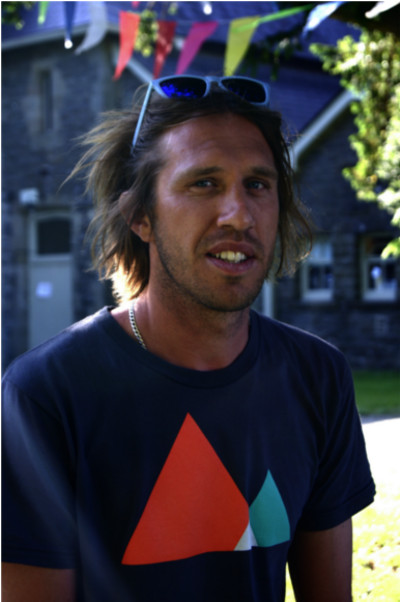Writing is undoubtedly the loneliest profession possible. I’ve tried to think of others and there are both silly and serious ones that do come to mind – but what makes writing so lonely is the way you can be right in the thick of it and surrounded by people, and yet essentially stuck in your thoughts and completely unable to share them.

There are many who love this arrangement, not least the English poet Wordsworth with his ‘bliss of solitude’. Famous writing recluses like Thomas Pynchon, Harper Lee (who had a great friendship with Truman Capote so she kind of doesn’t count), J.D. Salinger all come from America. Wales - where I live - however, is an immensely sociable country. We turn elite sport into a community sing-a-long, and in our arts and culture scenes we do all we can to support anyone else who’s looking to do what they do as long as it’s done with the flag of this proud nation in mind.
This is where literary societies come in. The Welsh Academy, the national society of writers in Wales, has always been something I see as crucial to the literary life of the country. The Academy, or Yr Academi as it’s probably better known to many, was founded by writers Bobi Jones, Waldo Williams and Meic Stephens precisely to give those stuck in this lonely profession the chance to share ideas and to interact. Nowadays we are probably supposed to call it networking, but what the Academy does, like any other society, is bring together its members the writers of elite and professional status within this diverse, bilingual and geographically varied land. We have three core purposes:
- Yr Academi exists to help the writers Wales meet the writers of Wales. It’s essential! Through events and discussion pages, we foster a sense of community among both prose specialists and poets. The problem of a writing life shared is the problem… well, maybe not halved, but somehow made more meaningful. Whether it’s to support each other, or to quietly encourage constructive competition, writers interacting is good for the literature of a nation.
- The society looks to celebrate the literature of Wales. With a fellowship and honorary membership system, we delight in the achievements and accomplishments of anyone whose work is helping contribute to the culture and legacy of language, its storytelling and commentaries. We organise and promote awards dinners and evenings, as well as having recently launched the Glyn Jones Bursaries to help develop up-and-coming writers in both the languages of Wales.
- In Yr Academi, we have a collective voice that will look out for the interests of writers and writing as a profession. We’re currently engaged in promoting and defending the interests of literature as great changes are made to the landscape and future of education. We’re also supporting campaigns to keep local libraries open, as these are place where the magic of reading is at its strongest.
A healthy nation needs a strong literary culture. A strong literary culture means writers feel like they belong to something. It’s also crucial that we can live in a country with a passion for the consumption of literature too, and Yr Academi is therefore always looking to encourage the population, especially the young, to take up a book or a poem and to love the worlds these works of art can take you to.
‘There is work to be done, boundaries to be crossed,’ said our new president, the iconic poet Gillian Clarke, on receipt of this prestigious title. (Gillian has taken over following the passing away of former long-term president Dannie Abse.) ‘Such a position within The Academi, like the rôle of National Poet, can be used to promote Wales, support our languages and the love of reading. I hope to speak up for Wales, poetry, writers and readers, especially children, whenever I get the chance, as I have done in India, Bangladesh, New York, Luxembourg, Italy. I love the company of poets, living and dead. Last year it was Dylan Thomas, bringing special commissions and readings at festivals across Britain. This year it is Coleridge and the Lyrical Ballads in Bristol - I put the Welsh view; future talks and readings in Liverpool, Aberdeen; Alun Lewis in Hay; Yeats day in Sligo; a bilingual book-launch in Italy. There are causes to support, libraries to save, two languages to foster, the planet to rescue. Let's do it!’
Writers are stronger together, and stronger writers lead to stronger literature. Gillian’s words show just why a writer should always look to get out there and share their lonely world. It will only add to that most unique bliss.
Follow The Welsh Academy on Twitter at @Yr_Academi
Tom Anderson grew up in Porthcawl, and was led into a writing career through journeys taken as a surfer. He studied at the University of Glamorgan before becoming a private investigator for over three years with London House Services. Tom’s main area of interest is travel, and he has written articles for New Welsh Review, Raconteur, DAPS Magazine, Planet, Wavelength, The Surfer’s Path, Fins Magazine, Tonnau Magazine, Cambria, the Times, the Western Mail, and many more.
"What makes writing so lonely is the way you can be right in the thick of it and surrounded by people, and yet essentially stuck in your thoughts and completely unable to share them."
Could not agree more. When I'm truly in the throes of a manuscript, I sort of don't want to go ANYWHERE. I would happily sit in a dark hole alone with nothing but the sound of my mad muttering and the tapping of keys. While I may walk away from my computer, my mind is still at the desk and it's not like you can sit and the dinner table and say "Regarding Chapter 13, do you think the pacing sags? I'm thinking of doing this/that. Thoughts, 3 year old?"
Great blog post :)